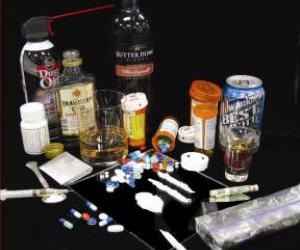
The hidden link between autism and addiction
Maia Szalavitz
Email successfully sent
close windowShane Stoner’s addiction began in 2008. He lost a factory job, his parents divorced, his father died—and then a relative introduced him to heroin. “I felt like heroin gave me confidence,” Stoner says. “I could get out of bed in the morning and do the day. No matter what happened, it made me feel like it was going to be all right.” It erased his constant anxiety.
Stoner, now 44, eventually entered detox in 2013 after he was arrested for stealing copper from an abandoned house. It was obvious at that point that he was addicted to heroin. But it would take several more years for him to get the diagnosis that truly helped him understand himself: autism.
The new label came as a relief. It explained Stoner’s sensitivity to things such as tags on his t-shirts, and his succession of obsessive interests. It clarified why he had such a difficult time fitting in as a child, his problems with roommates in college—and why he continued to struggle with social connections as an adult. “I can’t believe nobody ever mentioned it before, because I started thinking back and there’s pictures of me, like, 3 years old, and I’m honestly flapping my hands.”
Stoner is now three years into recovery from his addiction. “I like my autism now that I know what it is,” he says. “I don’t like all parts of it—I don’t like the anxiety—but it’s like it all made sense.”
Continue reading at The Atlantic here
Related Articles
Autism researchers discover genetic 'Rosetta Stone'
Distinct sets of genetic defects in a single neuronal protein can lead either to infantile epilepsy or to auti ..
Couple builds a community for their adult son with autism
Debra Caudy's youngest child, Jon, was diagnosed with moderate to severe autism when he was four years old, a ..
Donald Trump will be a disaster for autistic people
Donald Trump has never been a fan of disabled people. He's got an obsession with the appearance of being "weak ..

